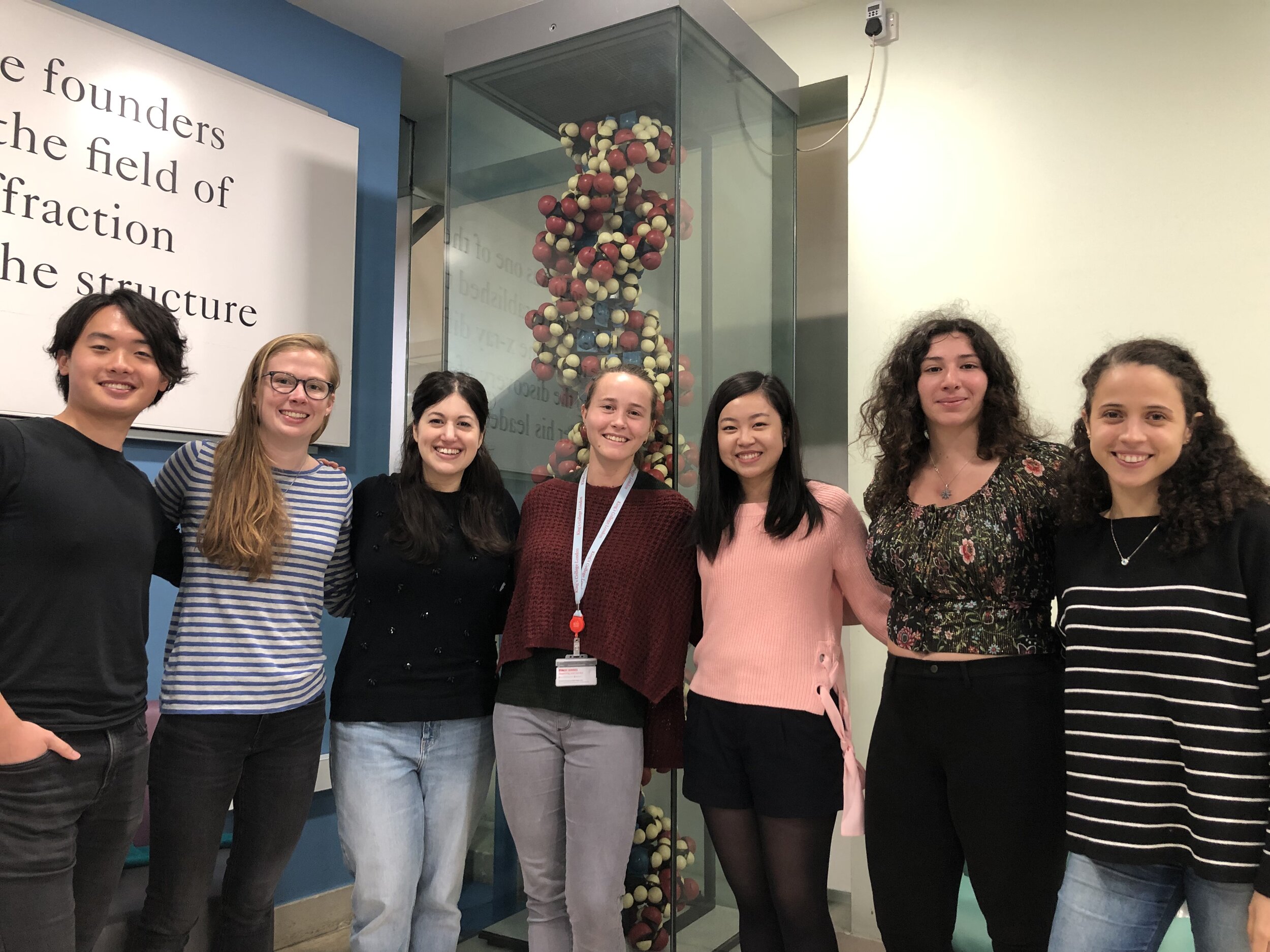COHORT 2019

From left to right: Matthew Chung, Elise Engquist, Abigail Isaacson, Eva Hamrud, Victoria Tsang, Elena Drudi and Nathalia Almeida dos Santos
I completed my Master’s degree in regenerative medicine at UCL and afterwards gained experience in corneal tissue engineering using 3D bioprinting at Newcastle University. Following this, I worked as a research assistant at the Sanger Institute where I helped to establish a pipeline for genetic knockout studies on induced pluripotent stem cell (iPSC)-derived hepatocytes.
I completed my undergraduate degree in Biomedical Engineering at Imperial College London. During my time there I became interested in how mechanical forces affect tissues in the body. In my third-year project I looked at the effect of mechanical forces on wound repair. For my master’s project I studied the effects of mechanical forces on endothelial cells and how this relates to the activation of the Wnt signalling pathway.
I completed my bachelor’s degree in biology at Bowdoin College in Maine, USA, and after graduating I worked as a Research Assistant in the Melton Lab at the Harvard Stem Cell Institute in Massachusetts, USA. While working there, I studied part-time to receive a Master of Liberal Arts degree in Biotechnology Management from the Harvard Extension School.
I completed a bachelor’s degree in Natural Sciences at University of Cambridge and a master’s degree in biotechnology at Imperial College London. I then worked for two years at AstraZeneca in Gothenburg, Sweden.
I obtained my bachelor’s degree in Biomedical Sciences and MPhil in Structural Biology at the University of Hong Kong. I completed an MSc in Health Data Science at University College London.
For my bachelor’s degree, I completed the course of Biomedical Sciences at the Federal University of São Paulo. In the third year of this course, I was awarded a scholarship from the Brazilian government to complete an exchange year at the University of Sheffield. When returning, I completed my bachelor thesis with Prof Patricia Beltrão Braga, in which I developed a 3D model of the developing brain using iPSC-derived neural progenitor cells. To carry on with my interest in neuroscience, I was thrilled to receive the Goethe Goes Global scholarship to complete a master’s degree in Interdisciplinary Neuroscience at the Goethe University of Frankfurt. My master thesis with Dr Julia Ladewig involved optimising protocols to derive forebrain organoids from iPSCs.
I completed my Bachelor’s degree in Biomedical Sciences at Queen Mary, University of London. Whilst there, I did my final year dissertation at William Harvey Research Institute on exploring the process of ubiquitination on the NF-κB activation downstream of TLR7 signalling. I joined an MRes in Cancer Biology at Imperial College London to acquire more diverse laboratory skills. For my first master rotation at the Francis Crick Institute, I had the opportunity to work with CyTOF and imaging mass cytometry to investigate the immune profile of Kras driven lung tumours from mice. Along with the design of an antibody panel and the optimisation of the protocol, I learned the use of current softwares and developed image analysis pipelines.







